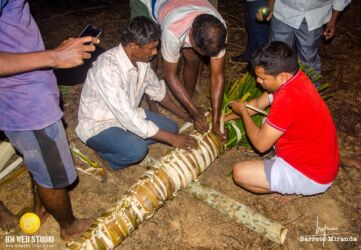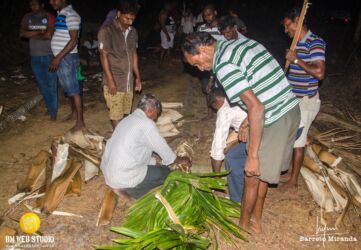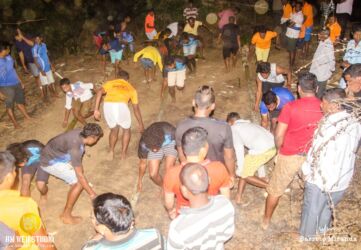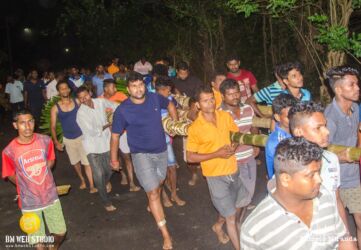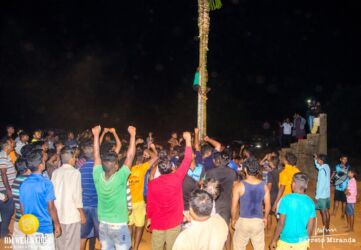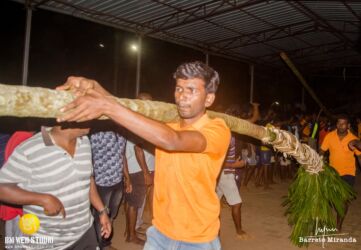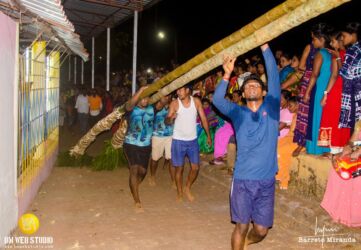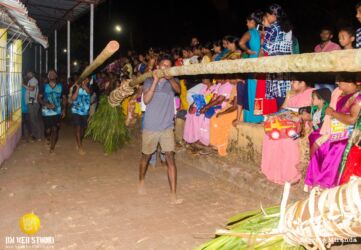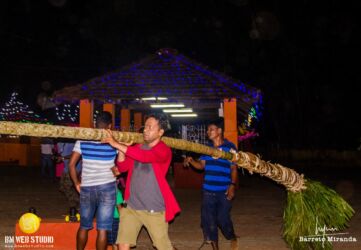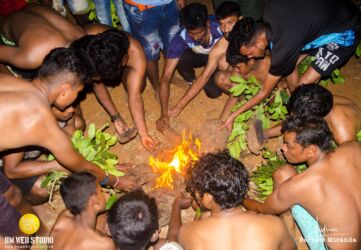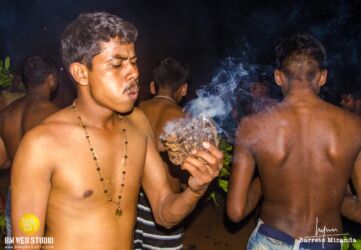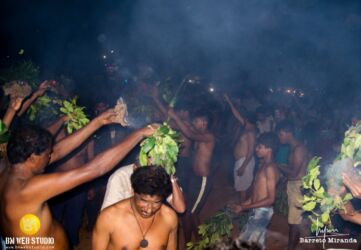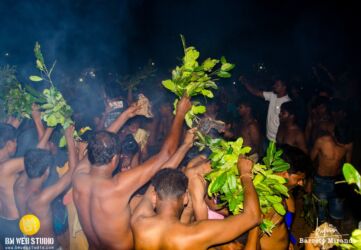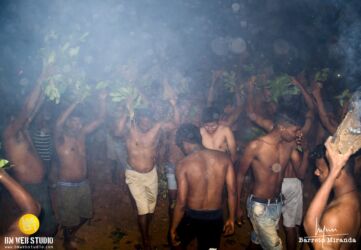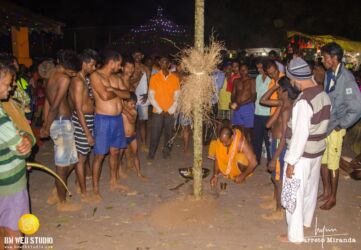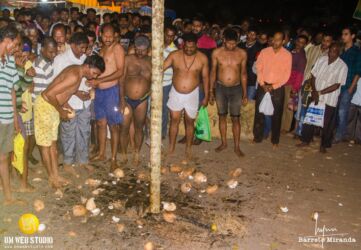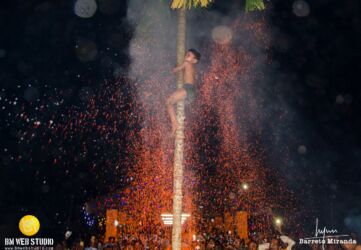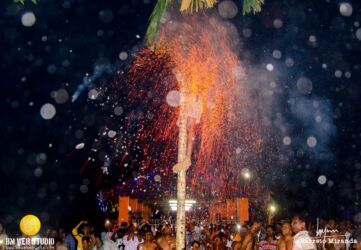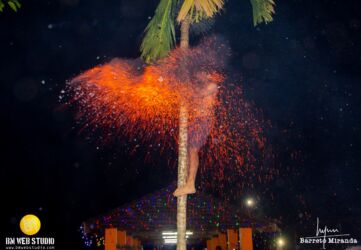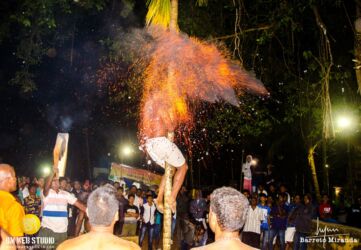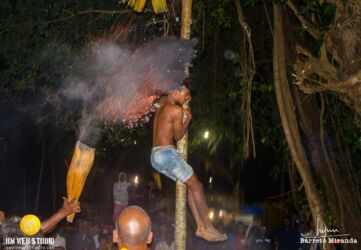Sheni Uzo at Molcornem
On the first full moon night after Shigmo, the remote village of Molcornem in Quepem hosts a unique and ancestral village ritual to celebrate the festival, their founding fathers, and their beliefs.
In a fast-changing world defined by the use of modern technology, one may be left bewildered as these villagers proudly use nature’s bounty for the traditional ritual called ‘Sheni Uzo’. They use dried cow dung cakes known as ‘sheni’ and dry leaves that, when hit against each other, create sparks (uzo).
While villagers dance through the created fire spark shower, bare-chested men carry areca nut tree trunks from select plantations around the Mallikarjun temple.
The same men who observe a strict vegetarian diet before the event form three rows, through which villagers walk, passing through the tunnel of ‘Sheni Uzo’. Later, they climb the same tree trunks, while the sheni is flung on their backs, and they proudly endure the sparks.
The villagers added that the men who perform the ritual have been taught from a young age, and for them, it is a matter of great pride and honor.
The areca nut tree trunks come from the plantations of select families chosen every year, and the ritual of carrying the trunks around the temple is a big part of the ceremony. The trunks that are thrown in the air and caught as they come down are also accompanied by a unique drumbeat characteristic of their village customs, not followed in other parts of Quepem.
Some men carry a trunk single-handedly, while others carry two trunks at a time, completing an average of three rounds.
The ceremony begins with the creation of sparks at all the shrines in the village, starting with the shrine of Zalmi, considered to be the founding father of the village.
What makes the event mesmerizing is the display of sparks against a canvas of darkness, as the ritual is performed in an area that is not illuminated.
“This has been followed by generations over hundreds of years, and the Hindu and Christian communities that live here participate in this,” said Surendra Gaonkar, a local from Molcornem.
Gaonkar added that their ancestors told them the tradition began at a time when there were no doctors, and the ritual was considered to protect them from diseases. At present, many couples walk through the sparks, hoping the sparks will bless their family with children and prosperity. People want to be touched by the sparks, opposed to the instinct of moving away from fire.
Another important aspect of this custom is that the villagers believe it tests their purity. If they pass through the fire unharmed, they have not sinned and do not get any burn marks as proof of their purity.
When it was pointed out that times have changed and there are now doctors available, Gaonkar said that the tradition still continues. When asked if people do not find it dangerous, he added that there has not been a single incident where anyone suffered any injury.

